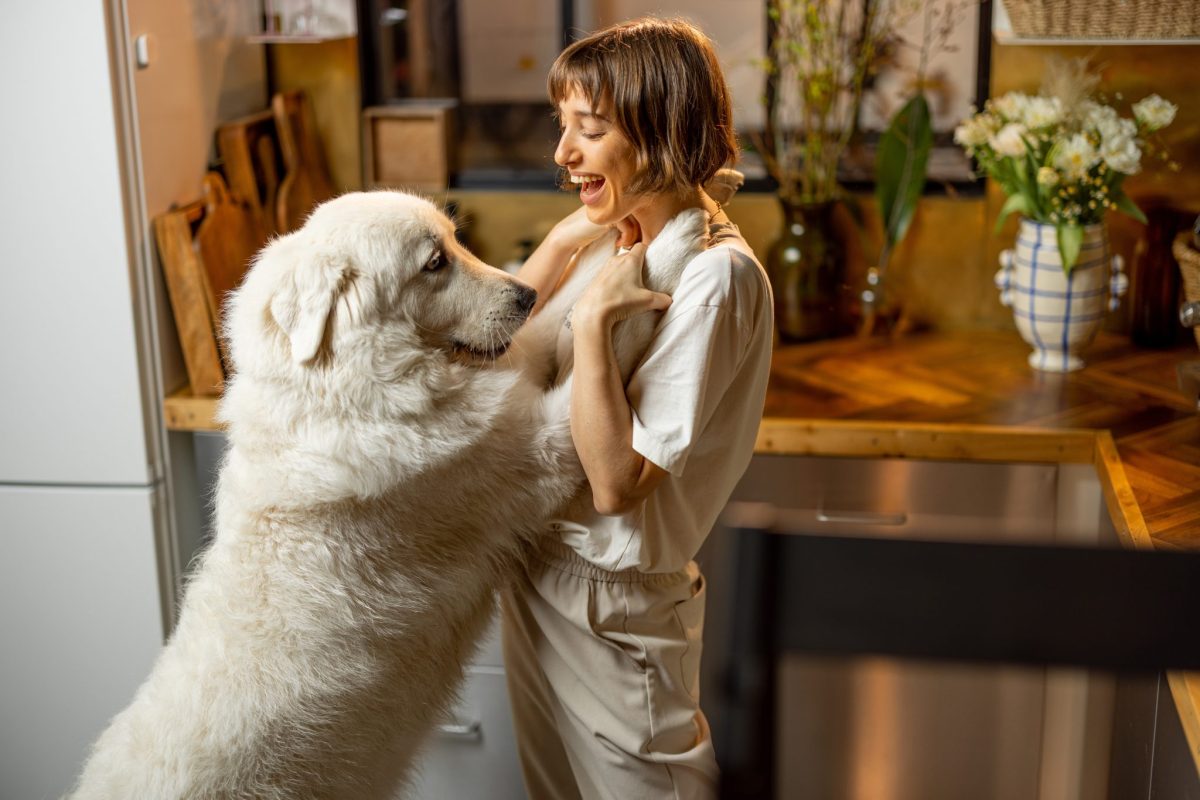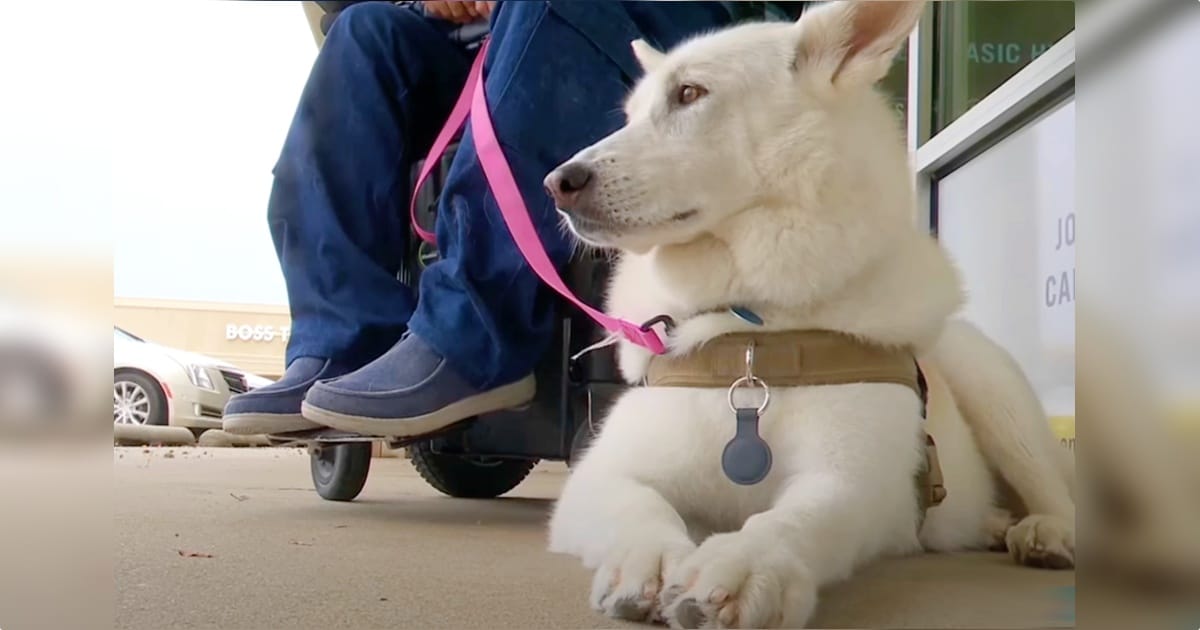 Shutterstock
Shutterstock
Like humans, dogs experience stress when encountering situations that make them feel uneasy, anxious, or overwhelmed. Although most dog owners strive to provide the best care, common mistakes may unintentionally cause their pets stress. Understanding what contributes to a dog’s anxiety is essential for ensuring their emotional and physical well-being. Mistakes such as sudden changes in routine, lack of mental stimulation, or insufficient exercise can result in anxiety, behavioral issues, and even health concerns. Addressing these stressors promptly can help maintain your dog’s happy and balanced life.
Inconsistent Routines
 Shutterstock
Shutterstock
Dogs thrive on routine, and when their daily schedule is constantly changing, it can cause unnecessary stress. Dogs like to know what to expect, whether it’s feeding times, walks, or bedtime. A lack of consistency can make them feel insecure and anxious. If dogs don’t know when they’ll be fed or taken outside, they may feel nervous and exhibit behavioral problems like whining, pacing, or destructive chewing. Sticking to a routine helps your dog feel safe and secure, knowing their needs will be regularly met.
Not Providing Enough Exercise
 Shutterstock
Shutterstock
One of dog owners’ biggest mistakes is not giving their dogs enough physical exercise. Dogs have different energy levels depending on their breed, age, and health, but all dogs need regular activity to burn off energy and stay healthy. When dogs don’t get enough exercise, they can become bored, frustrated, and stressed. This can lead to behaviors like barking, digging, and chewing on furniture. Regular walks, playtime, and mental stimulation are essential to keeping your dog calm and happy.
Ignoring Their Need for Mental Stimulation
 Shutterstock
Shutterstock
Dogs are intelligent animals that need mental stimulation to keep their brains engaged. Without enough mental challenges, dogs can become bored and stressed. Many dog owners overlook this need, focusing only on physical exercise. Puzzle toys, training sessions, and interactive games can help provide the mental engagement dogs need to stay happy and relaxed. Without it, dogs can develop anxiety, destructive behaviors, or even depression. Keeping your dog’s mind active is as important as keeping their body fit.
Overcrowded Environments
 Shutterstock
Shutterstock
While some dogs are social butterflies, others can become overwhelmed in crowded environments. Taking your dog to a busy park or social event without considering their comfort level can lead to stress. Dogs not used to being around large groups of people or other dogs may feel anxious or threatened. Overcrowded environments can overstimulate your dog, causing them to act out or become withdrawn. Understanding your dog’s social preferences and gradually introducing them to new situations to prevent stress is essential.
 Shutterstock
Shutterstock
A common mistake is not socializing a dog early in life. Socialization is crucial for dogs to learn how to interact with people, other animals, and different environments. Dogs can become fearful, anxious, and stressed in unfamiliar situations without proper socialization. They may react negatively to strangers, loud noises, or new experiences. Exposing your dog to a variety of sights, sounds, and people positively helps them build confidence and reduces the likelihood of stress when encountering something new.
Not Providing a Safe Space
 Shutterstock
Shutterstock
Dogs need a quiet, comfortable place to retreat when they feel overwhelmed. Whether it’s a crate, a specific room, or a cozy corner with their bed, having a safe space helps dogs decompress. Some owners overlook the importance of providing this space, leaving their dogs without a sanctuary to retreat to. Dogs can become anxious without a designated area to relax, especially during stressful events like thunderstorms, fireworks, or when guests come over. Providing a safe space helps your dog feel secure when they need a break from the chaos of daily life.
Using Punishment-Based Training Methods
 Shutterstock
Shutterstock
Using punishment as a form of training can be very stressful for dogs. Yelling, scolding, or using physical punishment only makes dogs fearful and confused. Dogs don’t understand why they’re being punished, and it often leads to more anxiety and behavioral problems. Positive reinforcement, where dogs are rewarded for good behavior, is much more effective and stress-free. It encourages learning through positive associations rather than fear, creating a stronger bond between the dog and the owner.
Ignoring Body Language
 Shutterstock
Shutterstock
Dogs communicate through body language; ignoring these cues can lead to stress. Many owners miss signs that their dog is anxious or uncomfortable, such as licking their lips, yawning, or avoiding eye contact. By not recognizing these signs, owners may unintentionally put their dogs in stressful situations. Reading your dog’s body language helps you understand when they’re feeling stressed or need space, allowing you to adjust the situation before it escalates.
Loud Noises and Sudden Changes
 Shutterstock
Shutterstock
Dogs are sensitive to loud noises and sudden changes in their environment. Thunderstorms, fireworks, and even loud music can cause extreme anxiety for some dogs. Additionally, sudden changes in their home, like moving furniture or introducing new people or pets, can create stress. Preparing your dog for these situations by gradually desensitizing them to loud noises or making changes slowly can help reduce anxiety. Providing comfort and reassurance during these events also helps them feel safe.
Leaving Them Alone for Too Long
 Shutterstock
Shutterstock
Dogs are social animals and thrive on companionship. Leaving them alone for extended periods can lead to stress, anxiety, and behavioral issues like excessive barking, chewing, or pacing. Dogs that are left alone too long may develop separation anxiety, a condition that causes intense stress when their owners leave. If you must be away for long periods, consider hiring a dog walker or asking a friend to check in on your dog. Providing toys and enrichment activities can also help keep them occupied and reduce stress while you’re away.
Changing Diet Too Abruptly
 Shutterstock
Shutterstock
Suddenly, changing your dog’s diet can cause physical and emotional stress. Dogs have sensitive digestive systems, and abrupt changes in their food can lead to stomach upset, diarrhea, or refusal to eat. This can cause discomfort and stress for your dog. When switching to a new food, it’s important to do so gradually, mixing the old food with the new one over several days. This helps your dog adjust to the new diet without causing unnecessary stress or digestive issues.
Lack of Veterinary Care
 Shutterstock
Shutterstock
Skipping regular vet visits or ignoring minor health issues can stress your dog. Dogs rely on their owners to keep them healthy, and neglecting their medical needs can lead to discomfort and anxiety. Regular check-ups help catch potential health problems early, ensuring your dog stays healthy and stress-free. Unaddressed health issues, like dental pain or skin irritations, can cause ongoing discomfort and stress for your dog, so staying on top of their healthcare needs is important.
Overstimulating Play
 Shutterstock
Shutterstock
While playtime is essential for a dog’s happiness, overstimulating your dog with too much excitement can lead to stress. High-energy games like roughhousing, constant fetching, or chasing may seem fun, but some dogs can become overwhelmed if the activity becomes too intense. Recognizing when your dog has had enough and needs to wind down is crucial. Dogs also need quiet, calm time to relax, and overstimulation can make it difficult to settle down after play.
Lack of Boundaries
 Shutterstock
Shutterstock
Dogs, much like children, need clear boundaries to feel secure. Without boundaries, dogs can become confused and anxious about what is expected of them. For example, inconsistent rules about where they can sleep or when they’re allowed on furniture can create uncertainty. Clear, consistent guidelines make it easier for dogs to understand their place in the household, reducing stress. Providing structure through training and routines helps dogs feel secure and reduces behavioral problems caused by anxiety.
Forcing Unwanted Interactions
 Shutterstock
Shutterstock
Some dog owners may push their dogs into situations or interactions they’re uncomfortable with, such as meeting strangers or other dogs. While socialization is important, forcing interactions can lead to stress and anxiety, especially for shy or fearful dogs. Let your dog approach new people, animals, and environments at their own pace. Rushing or forcing these encounters can backfire, making your dog more fearful and stressed. Respecting your dog’s boundaries is key to reducing stress in social situations.
Not Giving Enough Affection
 Shutterstock
Shutterstock
While some dogs are more independent, most crave affection and attention from their owners. Failing to provide enough physical and emotional closeness can lead to stress and feelings of neglect. Dogs are social creatures and thrive on positive reinforcement through touch, praise, and bonding time. Lack of attention can make them feel insecure, which may manifest as anxiety or destructive behaviors. Spending quality time with your dog and giving them affection is essential for their emotional well-being.
Stop Stressing Them Out, Already
 Shutterstock
Shutterstock
Your dog may be unable to tell you they’re stressed with words, but their behaviors speak loud and clear. Avoiding common mistakes can help your dog live a happy, stress-free life. No one wants a dog chewing up the furniture due to boredom or hiding under the bed from anxiety. Keeping their routine consistent, providing mental stimulation, and meeting their physical needs can make all the difference. A balanced, engaged dog is a joyful dog—and a lot less likely to give you stress in return!

 3 weeks ago
6
3 weeks ago
6


















 English (US) ·
English (US) ·